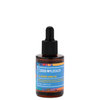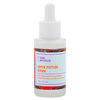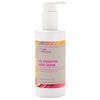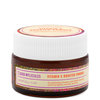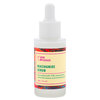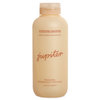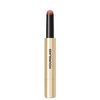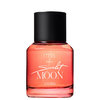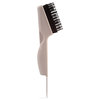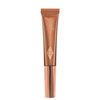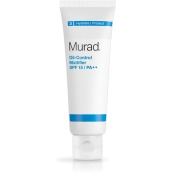This Skin Care Company Wants to Solve Adult Acne For Good
Published Nov 11, 2013


Those pesky zits that plagued our yearbook pictures should have been history the second we graduated high school, but for many of us that just isn’t the case. One entrepreneur thinks this is a new challenge. “Our parents and grandparents didn't struggle as much with adult acne, but it's a big problem for our generation,” says Andy Bosselman, founder of San Francisco-based acne treatment brand Arithmetic. Bosselman thinks that acne is a reaction to the modern way of life. “I think stress and how we eat now—lifestyle and environmental factors—differentiate our generation from the ones before us,” he explains.
An acne sufferer himself, Bosselman wasn’t happy with the pimple-fighting brands on the market. He began researching acne, delving into the latest studies out of curiosity and a vested interest. After noticing that most formulations seemed more suited to teenagers, who have a thicker dermis and thus different skincare needs, he took action. Armed with his research and with the aid of some chemists, Bosselman began experimenting with developing an acne product suitable for adults. Out of that came Arithmetic Acne Control Complex, a lotion with both benzoyl peroxide and tea tree oill (he’s working on expanding the line, too!). After testing it out, I’m on board. It feels amazing on—absolutely no dryness or flakiness—and within a week my skin looked much clearer!
We chatted with Bosselman to get a better sense of how he thinks adult acne became so prevalent, and what his research means for grownup blemish-busting.
What causes acne in adults?
When it comes down to it, acne is a blocked pore that gets infected. That’s what causes it. But all of the underlying issues related to it are very complex, and we can’t yet put a finger on any single factor. Anything that affects your hormones can cause acne, which is one of the reasons adult acne affects more women than men. The prevalence of acne in adults is much greater today than it was 50 years ago. It's hard to pinpoint specific culprits, but a number of things are very different today. The average American undergoes something like nine courses of antibiotics by the time they’re 18. Plastics that carry our food contain chemicals that may affect our hormones. We grew up drinking milk with hormones. Our lifestyles are very different from the previous generations, too. Most Americans today eat too much, and a lot the foods we eat can cause hormonal spikes that affect acne. Our always-on digital culture makes us more anxious and we sleep less—which increases stress, which affects the body and the skin.
How is adult acne different from teen acne?
Adult skin responds well to both alternative dosages of conventional ingredients and natural ingredients, both of which are difficult to find in existing products. Adult skin is drier, thinner, and needs to be treated more gently. Most products are aimed at teenagers and designed to act fast, so they're loaded with strong chemicals. When adults use these products, they tend to have painful side effects that force them to cycle off after a couple of months, or use the products in an on-and-off manner that isn’t effective. The growing body of research suggests adult acne is a chronic condition, one that benefits from gentler products that you can use consistently over time. All of this inspired me to start Arithmetic—I was reading this research while working in Sephora's headquarters, where I had access to so many products. But none aligned with what research had shown would work for my case. So I started mixing up my own stuff, it worked, and I started this company.
What’s your regimen?
I do three steps.
1: Cleanse. Or I should say, rinse with water alone. I believe in letting your treatment product do the work. My recommendation is to use a very gentle cleanser—or do what I do and just rinse your face with warm water. Avoid scrubs with grit, and never use a washcloth.
2: Hydrate: Everyone needs an SPF facial moisturizer for the UV protection. Also, moisturizing can actually help your skin regulate oil production. It makes sense: if your skin is hydrated, your body doesn't need to pump its own oil to the skin. I like CeraVe Facial Moisturizing Lotion and Murad Oil-Control Mattifier SPF 15.
3: Treat: With Arithmetic Acne Control Complex, of course!
What ingredients make Arithmetic unique?
Benzoyl peroxide (a bacteria-killing compound) is hands-down one of the most effective acne treatments available. It's even more effective than many prescription drugs, especially now that antibiotic resistance has pushed some researchers to call on doctors to stop using antibiotics for the treatment of acne. In a nutshell, benzoyl peroxide does two things, it kills bacteria and promotes skin cell turnover. It’s not an antibiotic, so its antimicrobial properties work even when antibiotics don't—and it’s also a relatively safe ingredient. The Environmental Working Group rates it as having a low risk profile for health concerns including cancer, reproductive toxicology, and allergies. You can see EWG’s profile of benzoyl peroxide here.
When it came around in the sixties, scientists said, “let’s use it at a 10% dosage!” and the FDA said “Yeah, that’s safe.” Well, 10% is really harsh, and so are many other ingredients in a lot of products out there. There aren’t a ton of “natural” options. We are using benzoyl peroxide in our Acne Control Complex, but at a much lower dosage (3%), and counteracting the drying/flaking effects with a lot of moisturizers, like shea butter and jojoba seed oil.
Our product also contains tea tree oil, which some studies have shown is just as effective against acne as benzoyl peroxide (but it's not an acne drug regulated by the FDA). Both ingredients give the product a synergistic one-two punch!
Salicylic acid, sulfur, and non-drug ingredients are all good, too, especially for certain types of less severe acne. We went with benzoyl peroxide because it's significantly more effective for a wider range of acne than salicylic acid. In the future, we'll develop new products with a wider range of ingredients.
What about prescription acne treatments?
Accutane can’t be beat as far as wiping out acne, but it’s also pretty extreme. The approach used to be, “Hey, let’s go thermonuclear and just kill everything that’s on the skin,” and now we’re starting to say, “Well, maybe that’s not the best idea.”
So your product is more natural?
I call our product “natural-ish.” We based it off of Whole Foods’ standards for natural-grade ingredients because it’s fairly natural but not too restrictive. Because there aren't great standards set for healthy ingredients in cosmetics—there's nothing like the Good Housekeeping Seal Of Approval—Whole Foods’ list of banned ingredients is a good reference when I work with chemists. It’s important, because most acne products are are loaded with preservatives, thickening agents, and artificial fragrances that can irritate skin and just aren't necessary.
But we made an exception to the list for the acne ingredients (benzoyl peroxide), which is something a lot of people with acne will understand. I don’t want a bunch of chemicals; I want something that’s a little more thoughtfully designed, but I want it to work, too. And tea tree oil, which is natural, has been shown to work really, really well.
Are there other ways to battle adult acne?
When it comes to diet, I've never liked restricting certain types of foods. I'd rather focus adding on good stuff: fruit, vegetables, and anything that has a low glycemic index and is high in fiber. Speaking of fiber, taking care of your gut just might help your complexion. I've been taking fiber and it's amazing.
As far as lifestyle issues, yoga and fitness can help regulate stress hormones. I do a few sun salutations every morning, which I highly recommend, and I work out 4–5 days a week. I also keep a journal to get anxieties out of my head and onto paper. And most nights, I try to shut off all screens by 9 p.m., which some people think can help improve sleep.
The ideal way is to really take care of your skin, be good to it, and create an environment where acne is less likely to occur in the future. My long-term vision for Arithmetic is to create digital tools that will help people moderate their stress levels, sleep, nutrition, and exercise, which are all possible contributing factors. But right now we’re focused on the products. We already have repeat customers, glowing reviews, and I think that what we’re doing is really exciting for people who struggle with adult acne.
Featured Products
You Might Also Like
-

Skincare
Avoid The White Cast of Sunscreen
- 106
-
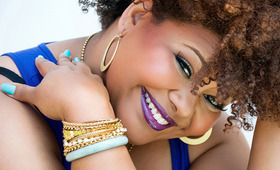
Skincare
Beauty Secrets From "Afrobella"
- 53
-
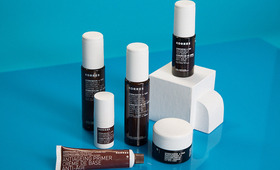
From the Shop
What Is Quercetin?
- 288
-

Self-Tanners
The Best Smelling Self-Tanners
- 98
-
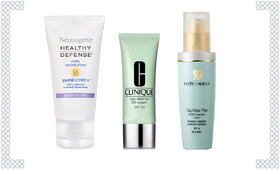
Moisturizer
Top 3 Daytime Moisturizers For Winter
- 153
-
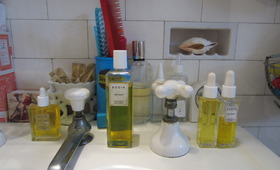
Interviews
Spotlight On: Linda Rodin
- 25
-
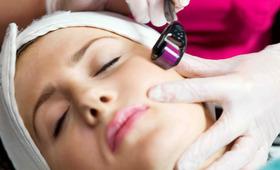
Skincare
Dermal Needling: What It Is and Who It’s For
- 602
-
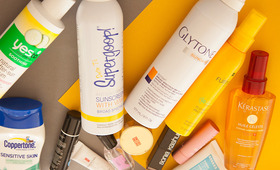
Sun Protection
Summer Beauty Special! A Head To Toe Guide to Suncare Products
- 1138



